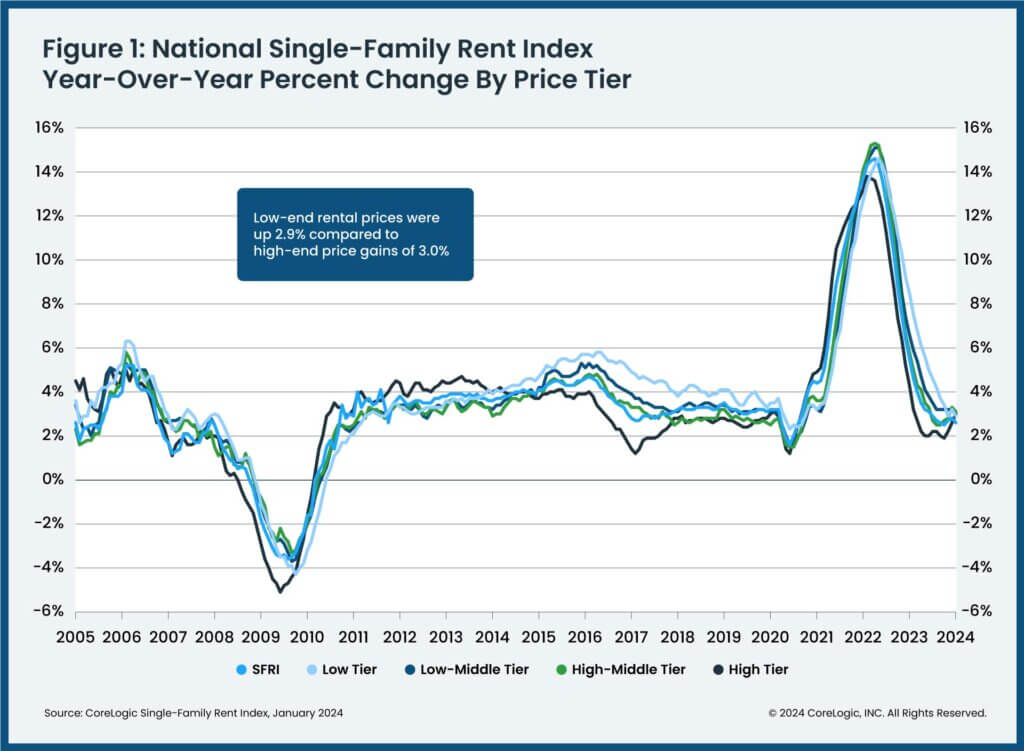

Investing in residential real estate for the rental market remains profitable overall, but investors may have to be patient for growth in rents to increase.
The latest Single-Family Rent Index from CoreLogic shows that year-over-year rent growth in January 2024 was 2.6% (below the 3.1% rate of inflation for the month), has been below 3% since summer 2023, and has not been in double digits since the fall of 2022.
But for those investors that have been in the market since the start of the decade or longer, the returns are more favorable at around 28% from February 2020 to January 2024 including a 29.5% increase for the lowest price tier (those 75% or less than the regional median).
“While annual U.S. single-family rent growth was a moderate 2.6% in January, that increase built on years of above-trend annual gains,” said Molly Boesel, principal economist for CoreLogic. “Furthermore, while rent growth is slowing, costs are still increasing across most of the country. The median rent on a three-bedroom property increased by over $100 in the past year and by more than $500 in the past three years.”
CoreLogic recently reported that US homeowners added a cool $1.3 trillion to their home equity in 2023, suggesting that many investors will have improved the value of their rental market assets.
As with most things real estate, the national average rent growth belies what’s happening in regional markets, with Honolulu leading the above-average cohort at 6%, followed by Seattle at 5.2% and New York at 5.1%. Conversely, four metro areas posted annual rental price losses: Miami (-2.4%); Austin, Texas (-2.3%); New Orleans (-1%) and Minneapolis (-0.9%).


Integrated Partners is adding a mother-son tandem to its network in Missouri as Kestra onboards a father-son advisor duo from UBS.

Futures indicate stocks will build on Tuesday's rally.

Cost of living still tops concerns about negative impacts on personal finances

Financial advisors remain vital allies even as DIY investing grows

A trade deal would mean significant cut in tariffs but 'it wont be zero'.
RIAs face rising regulatory pressure in 2025. Forward-looking firms are responding with embedded technology, not more paperwork.
As inheritances are set to reshape client portfolios and next-gen heirs demand digital-first experiences, firms are retooling their wealth tech stacks and succession models in real time.
